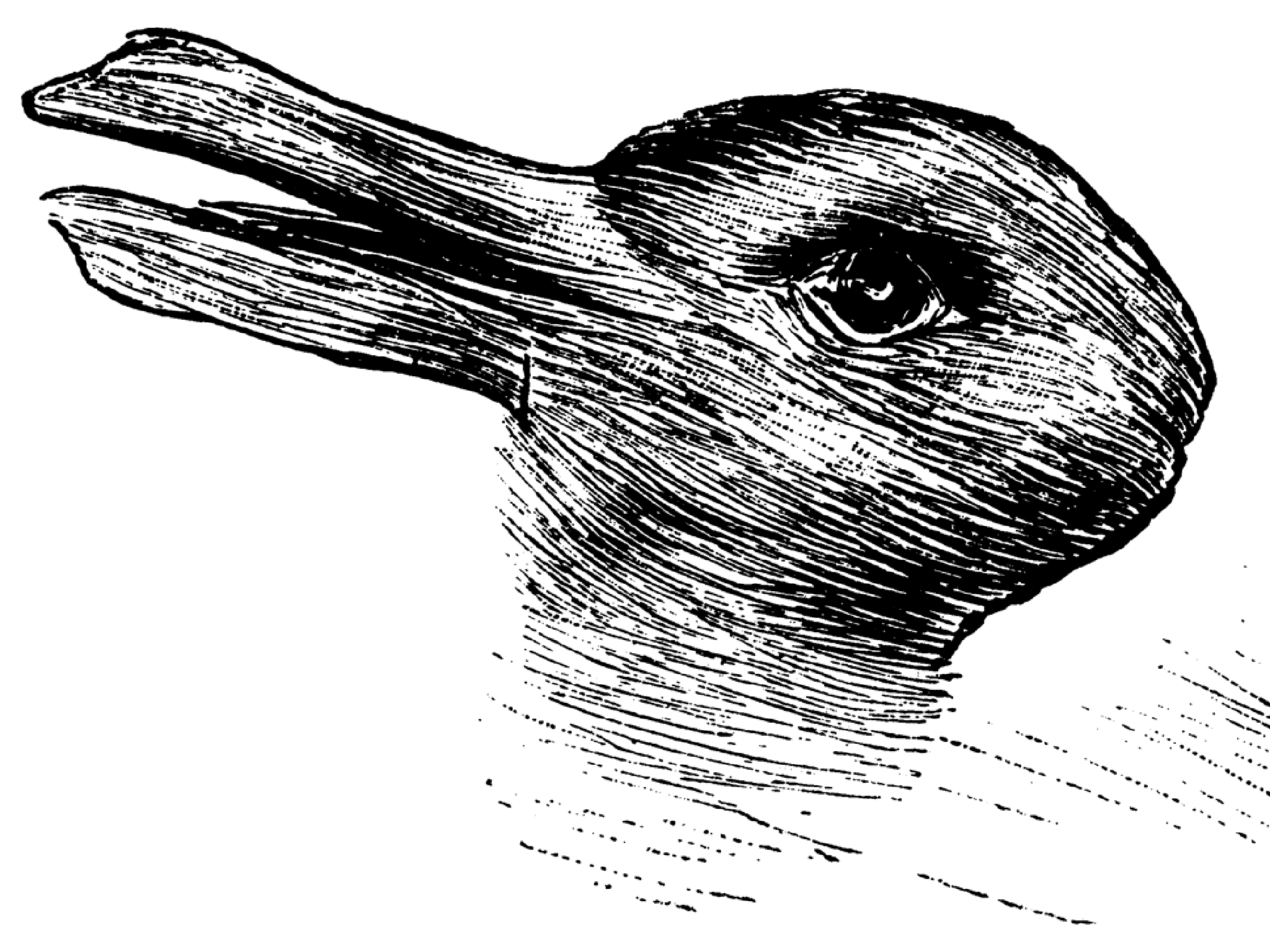Monday, October 17, 2016
Rabbit season! Duck season! Rabbit season!
I'm planning on coming back and elaborating more on this later, but, as frequently noted here and elsewhere, while most commentators have fared extraordinarily poorly over the past year, a handful (including, yes, your not-so-humble hosts) have had a good run. Though they may not have framed it in exactly these terms, pretty much everybody who has gotten it mostly right has approached the election as the final stages of a massive social engineering experiment conducted by the conservative movement.A key component of this experiment involved setting up radically different information streams for different target audiences. We talked about this before but one aspect that I've always wanted to address but never managed to get to is the way that this dual stream can explain seeming paradoxes in the radically different reactions of different groups of people to the same information.
In order to get a handle on this, it might be useful to think back to that time in psych 101 when the professor brought out the ambiguous pictures.The standard example is the old woman and young woman (originally captioned in a cartoon as "my wife and my mother-in-law"). For the sake of variety, let's go with another.
The psych lecture would go something like this. Half the class was told to cover their eyes, the other half was shown a series of slides of birds. Then that half of the class was told to cover their eyes and the other half was shown a series of slides of small mammals. After being thus prepared, everyone looks at the following picture and is asked to write down what they see.
For the commentators who took the time to dig through the various media streams and put themselves in the place of each target audience (most notably Josh Marshall), it has been obvious for quite a while that those in the right-wing media bubble have a strong tendency to interpret events in a way that is consistent with the information, framing and narratives of the bubble. Donald Trump succeeded in the primaries because both his arguments and his affect seemed reasonable in the context of Fox News and Rush Limbaugh.
I'll come back and fill in some more details later but, as much as I want to avoid oversimplifying, this really is pretty simple. The journalists who have come off as sharp and ahead of the curve, have all (as far as I can tell) looked seriously at right-wing media and have asked themselves, if I actually believed everything I just heard, how would I react to the different candidates and their proposals?
This begs loads of questions and I don't want to oversell the explanatory power here, but given all of the overheated rhetoric about how chaotic and unpredictable this election has been, it's worth noting when those getting it right have something in common.

No comments:
Post a Comment